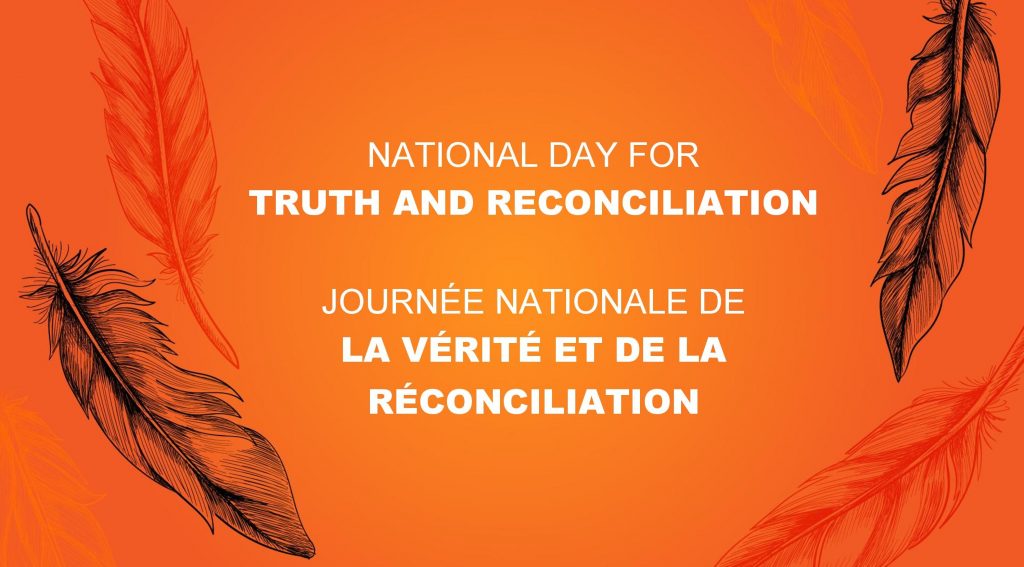As you may be aware, today marks the first National Day for Truth and Reconciliation. In June, the Federal Government passed legislation to recognize September 30th as a statutory holiday, making it a paid day off for federal employees and staff in federally regulated workplaces.
From the 1880s through the 1990s, the Canadian government forcibly removed at least 150,000 Indigenous children from their homes and sent them to residential schools designed to sever them from their culture and assimilate them into Western ways — a system that a National Truth and Reconciliation Commission in 2008 called “cultural genocide”. At the schools, 70% of which were run by the Catholic Church, sexual, physical, and emotional abuse and violence were commonplace.
Since that time there have been multiple discoveries of unmarked graves containing the remains of Indigenous children at the sites of defunct Canadian Indian residential schools in several provinces. The National Truth and Reconciliation Commission has estimated that approximately 4,100 children went missing from the schools, but a former Indigenous judge who headed the commission, Murray Sinclair, declared in an email, that he now believes the number to be “well over 10,000”.
These discoveries are a grim reminder of centuries of discrimination, abuse, and injustice that Indigenous people have faced and continue to face today.
Let us honour the Indigenous community by taking the time to learn, reflect and acknowledge the intergenerational harm that these residential schools have caused to them and stand in solidarity with the survivors and their families. The goals of this day in part will be to educate the Canadian public about the suffering of survivors. If this educational goal is met with success, it will alter the ways in which Canadians think about their culture and history, challenging their identity as members of a community. Such transformation, many believe, is the first step toward reconciliation between the two communities.
For those of you who would like to learn more about the efforts towards Truth and Reconciliation you can find the Calls to Action that resulted from the profoundly important work of the Truth and Reconciliation Commission attached HERE.
In Solidarity,
Your Component Diversity Committee

